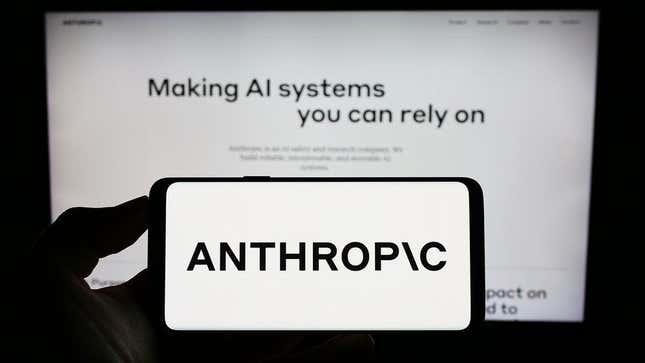
In its latest bid to adopt artificial intelligence technology, Amazon announced on Monday that it is investing a bundle in OpenAI competitor Anthropic. The investment will reach up to $4 billion, making Amazon Web Services (AWS) the primary cloud provider for Anthropic.
Anthropic said it will collaborate with the tech giant to run “secure, reliable infrastructure,” adding that Amazon’s investment “will make Anthropic’s safe and steerable AI widely accessible to AWS customers.”
Amazon will gain a minority stake in the company that was responsible for building the AI assistant, Claude. The application responds to text and instructions that are input by users and is self-described as an AI safety and research company based out of San Francisco.
The collaboration will allow Anthropic to use AWS Trainium and Inferentia chips to train its AI foundation models, using AWS as its primary cloud provider. AWS customers will have early access to Anthropic’s model customization features and fine-tuning capabilities, Amazon said in a press release. Amazon and Anthropic will also work together using Amazon Bedrock, a service that builds generative AI applications.
“Training state-of-the-art models requires extensive resources including computing power and research programs,” Anthropic said in the press release. It added: “Amazon’s investment and supply of AWS Trainium and Inferentia technology will ensure we’re equipped to continue advancing the frontier of AI safety and research.”
Anthropic was founded by former OpenAI employees in 2021 and has grown into a leading foundation model following its rollout of the Claude AI assistant. The company launched Claude 2 in July, which reportedly produces “less harmful outputs,” according to Amazon, and is “easier to converse with, and more steerable compared to other foundation models.”
The investment comes as Amazon started incorporating AI in April, months after other tech companies entered the AI race, with Microsoft investing a reported $13 billion in OpenAI and Google investing more than $300 million in Anthropic in May. Amazon initially committed to investing $1.25 billion in Anthropic, The Wall Street Journal reported, citing people familiar with the matter.
Anthropic reported it raised $450 million in Series C funding as of May, and CEO Dario Amodei said in a press release at the time: “We are thrilled that these leading investors and technology companies are supporting Anthropic’s mission: AI research and products that put safety at the frontier.”
“We have tremendous respect for Anthropic’s team and foundation models and believe we can help improve many customer experiences, short and long-term, through our deeper collaboration,” Amazon’s CEO Andy Jassy said in a company press release. “Customers are quite excited about Amazon Bedrock, AWS’s new managed service that enables companies to use various foundation models to build generative AI applications on top of, as well as AWS Trainium, AWS’s AI training chip, and our collaboration with Anthropic should help customers get even more value from these two capabilities,” he added.
Amazon has already introduced other AI efforts including AI-generated one-paragraph reviews, to sum up both positive and negative Amazon reviews on a product. It also created a team to work on AI tools in May to drive advertising revenue using generated photos and videos for digital and audio ads.
Over the weekend, departing Amazon product executive Dave Limp told Bloomberg that training AI is very expensive, and while “the Alexa you know and love today is going to remain free,” people should expect advanced iterations of the assistant to come with a subscription fee in a few years.